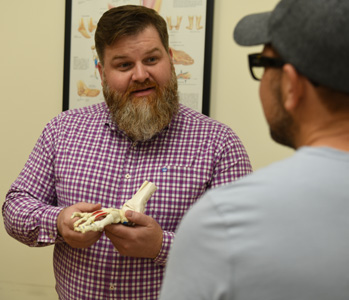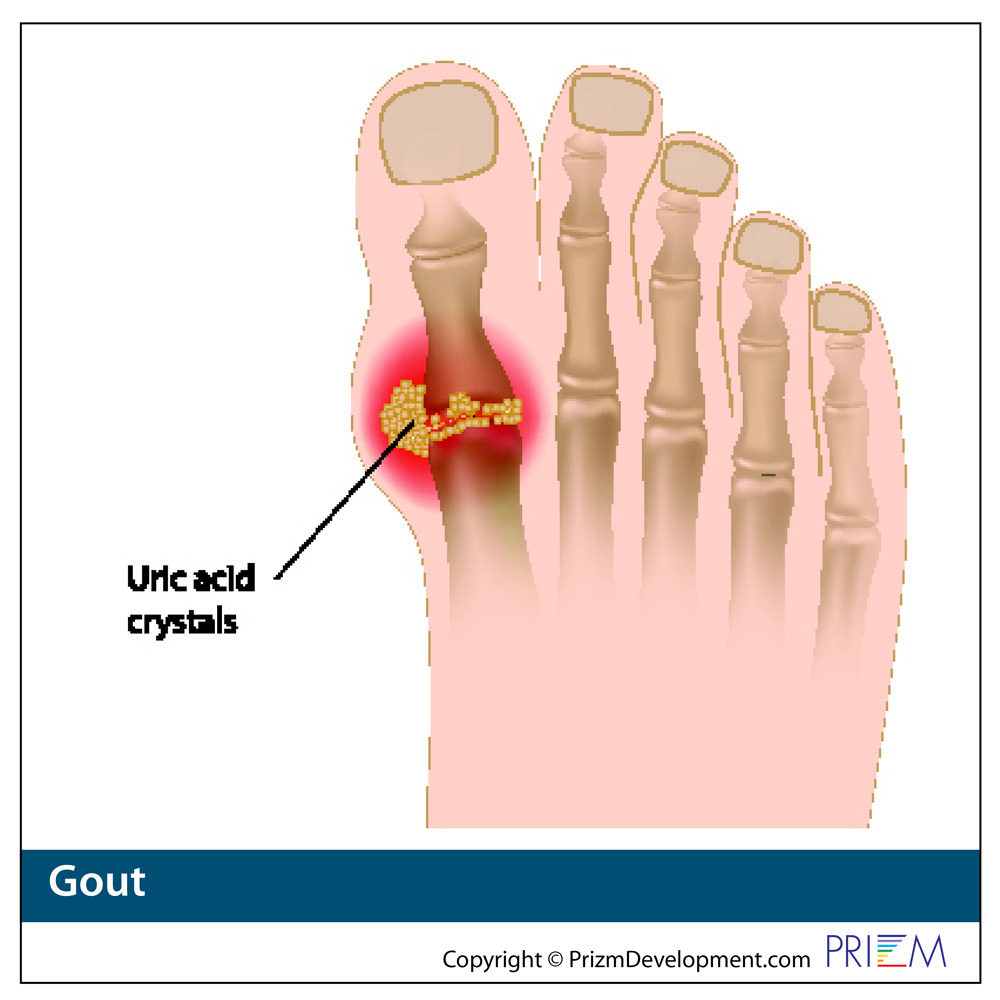Diabetic Foot Problems
![]() People with diabetes are prone to having foot problems, often because of two complications of diabetes: nerve damage (neuropathy) and poor circulation. Neuropathy causes loss of feeling in your feet, taking away your ability to feel pain and discomfort, so you may not detect an injury or irritation. Poor circulation in your feet reduces your ability to heal, making it hard for even a tiny cut to resist infection. The problem affects about 60-70 percent of people with diabetes.
People with diabetes are prone to having foot problems, often because of two complications of diabetes: nerve damage (neuropathy) and poor circulation. Neuropathy causes loss of feeling in your feet, taking away your ability to feel pain and discomfort, so you may not detect an injury or irritation. Poor circulation in your feet reduces your ability to heal, making it hard for even a tiny cut to resist infection. The problem affects about 60-70 percent of people with diabetes.
Having diabetes increases the risk of developing a wide range of foot problems. Furthermore, with diabetes, small foot problems can turn into serious complications. The podiatrists at Celebration Orthopaedics recommend that all people with diabetes monitor the health of their feet. If you don't, the consequences can be severe, including amputation.
With a diabetic foot, a minor wound, such as a blister from wearing a shoe that’s too tight, can become a major emergency. If your wound is not healing, it’s at risk for infection. As a diabetic, your infection may spread quickly, and if you have any loss of sensation (neuropathy) you may not recognize that the problem is getting worse.
Proactive Measures
You play a vital role in reducing complications. Follow these guidelines and contact your Celebration Orthopaedics foot and ankle surgeon if you notice any of the following problems:
- You or someone else should inspect your feet daily.
- Look for skin or nail problems: Look for cuts, scrapes, redness, drainage, swelling, bad odor, rash, discoloration, loss of hair on toes, injuries, or nail changes (deformed, striped, yellowed or discolored, thickened, or not growing).
- Look for signs of fracture: If your foot is swollen, red, hot, or has changed in size, shape, or direction, see your foot and ankle surgeon immediately.
- Don’t ignore leg pain. Pain in the leg that occurs at night or with a little activity could mean you have a blocked artery. Seek care immediately.
- Nail cutting. If you have any nail problems, hard nails, or reduced feeling in your feet, your toenails should be properly trimmed. Trim your toenails straight across and avoid cutting the corners.
- No “bathroom surgery.” Never trim calluses or corns yourself, and don’t use over-the-counter medicated pads.
- Foot care. Wash your feet every day with mild soap and warm water. Don’t soak your feet and pat dry with a towel, being careful to get between the toes.
- Don’t go barefoot. Wear shoes indoors and outdoors. Wear loose socks to bed and wear warm socks and shoes in the winter.
- Choose and wear your shoes carefully. Buy shoes that are comfortable without a "breaking in" period. Check how your shoe fits in width, length, back, bottom of the heel and sole, and the inside of each shoe before putting it on. Feel inside it with your hand.
- Have your circulation and sense of feeling tested. Your foot and ankle surgeon will perform tests to see if you’ve lost any feeling or circulation.
Symptoms
- Infections and ulcers (sores) that don’t heal: An ulcer is a sore in the skin that may go all the way to the bone. Because of poor circulation and neuropathy in the feet, cuts or blisters can easily turn into ulcers that become infected and won’t heal. This is a common, and serious, complication of diabetes and can lead to a loss of your foot, your leg, or your life.
- Corns and calluses: When neuropathy is present, you can’t tell if your shoes are causing pressure and producing corns or calluses. Corns and calluses must be properly treated or they can develop into ulcers.
- Dry, cracked skin: Poor circulation and neuropathy can make your skin dry. This may seem harmless, but dry skin can result in cracks that may become sores and can lead to infection.
- Nail disorders: Ingrown toenails, which curve into the skin on the sides of the nail, and fungal infections can go unnoticed because of a loss of feeling. If they are not properly treated, they can lead to infection.
- Hammertoes and bunions: Nerve damage affecting muscles can cause muscle weakness and loss of tone in the feet, resulting in hammertoes and bunions. If left untreated, these deformities can cause ulcers.
- Charcot foot: This is a complex foot deformity. It develops as a result of a loss of sensation and an undetected broken bone that leads to the destruction of the soft tissue of the foot. Because of neuropathy, the pain of the fracture goes unnoticed and the patient continues to walk on the broken bone, making it worse. This disabling complication is so severe that surgery, and occasionally amputation, may become necessary.
- Poor blood flow: In diabetes, the blood vessels below the knee often become narrow and restrict blood flow. This prevents wounds from healing and may cause tissue death.
Treatment Options
Your foot and ankle surgeon can help wounds heal, preventing amputation. There are many surgical techniques available to save feet and legs, including joint reconstruction and wound healing technologies. Getting regular foot checkups and seeking immediate help when you notice something can keep small problems from worsening. Your foot and ankle surgeon works together with other health care providers to prevent and treat complications from diabetes.
Recognizing the need in the suburban Orlando market of Celebration, Florida for a general surgeon who provides treatment of vascular problems, varicose veins, wound care and hernia repair, Celebration Orthopedics created Celebration Specialty Care (CelebrationSpecialtyCare.com) with Dr. Ryan Ramos, a board-certified general surgeon. Podiatrists and foot orthopedists often encounter foot problems linked to diabetes. Diabetic patients can have circulatory problems related to vascular and vein issues, which can prevent normal wound healing. The orthopedic surgeons at Celebration Orthopaedics believed that having a vein and wound specialist located in Celebration, FL to consult on diabetic patients improves the clinical care of these patients and provides more direct communication between these two specialties for improved patient care and clinical outcomes. More information is at CelebrationSpecialtyCare.com.

 Foot & Ankle
Foot & Ankle